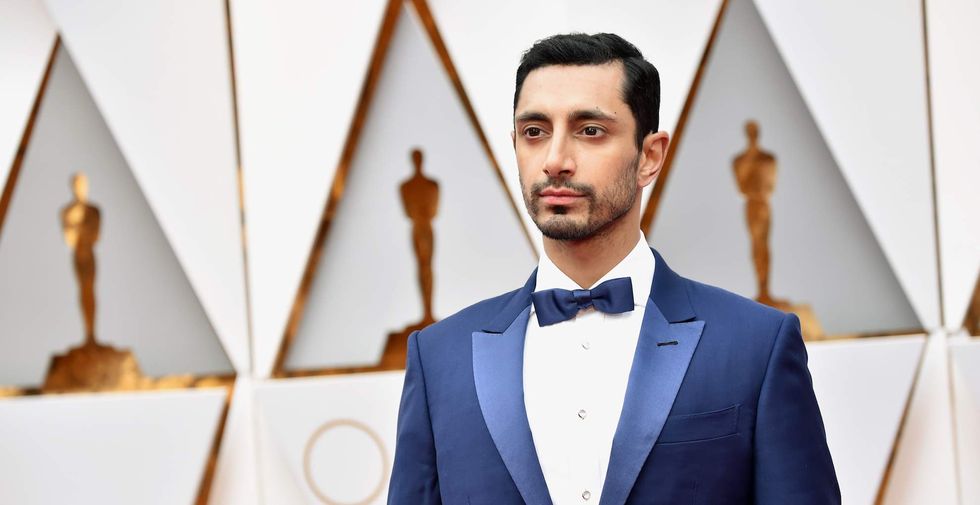
British actor Riz Ahmed attended the 89th Annual Academy Awards on Feb. 26 in Hollywood, California. He spoke this week to the British Parliament about the United Kingdom's diversity problem in movies and television. (Frazer Harrison/Getty Images)

British actor Riz Ahmed, known for his recent role as Bodhi Rook in "Rogue One: A Star Wars Story," fears a lack of diversity in the entertainment industry is going to lead young adults to join the Islamic State.
Ahmed, speaking this week to the British Parliament about the issue, said the United Kingdom's diversity problem in movies and television could cause people to "retreat to fringe narratives, to bubbles online and sometimes even off to Syria," according to The Guardian.
"If we fail to represent, we are in danger of losing people to extremism," he said. "In the mind of the ISIS recruit, he’s the next James Bond, right? Have you seen some of those ISIS propaganda videos? They are cut like action movies."
"Where is the counternarrative?" he asked. "Where are we telling these kids they can be heroes in our stories, that they're valued?"
Ahmed, a Muslim with Pakistani parents, has also starred in "Jason Bourne" and HBO's "The Night Of" and "Girls," all of which are American productions. The actor stressed to the U.K. leaders that he still has to go to the U.S. to land major acting roles — a comment that, interestingly enough, flies directly in the face of conclusions reached on the heels of 2016's "#OscarsSoWhite" controversy.
According to a University of Southern California study, Hollywood suffers from an "epidemic of invisibility." After analyzing more than 21,000 characters and behind-the-scenes workers on more than 400 movies and TV shows from September 2014 to August 2015, Stacy L. Smith, one of the study's authors, concluded to NPR: "We're seeing that there's not just a diversity problem in Hollywood; there's actually an inclusion crisis."
Ahmed's story offers a different perspective.
"It takes American remakes of British shows to cast someone like me," he said. "We end up going to America to find work. I meet with producers and directors here and they say, 'We don’t have anything for you, all our stories are set in Cornwall in the 1600s.' "
In Britain, Ahmed said, diversity is seen as a "frill or an added extra" that does not need to be immediately remedied, but in his view, it's already making a dangerous impact.
"If we don't step up and tell a representative story ... we are going to start losing British teenagers to the story that the next chapter in their lives is written with ISIS in Syria," he told Parliament. "We are going to see the murder of more [members of Parliament] like Jo Cox because we've been mis-sold a story that is so narrow about who we are and who we should be."
However, some people are not convinced that such a problem will lead people to extremism. Conservative writer Ben Shapiro, an Orthodox Jew, called Ahmed's claim "asinine in every conceivable way."
"[I]t’s rather Islamophobic to assume that Muslim youths who don’t see a Muslim James Bond will up and join ISIS," he wrote in a Friday column at The Daily Wire.
"I didn’t see a lot of Orthodox Jews on television growing up. Somehow, I didn’t end up a member of the Neturei Karta," he said, referring to the Jewish extremist group favoring the dismantling of the state of Israel.
Nevertheless, in 2015, a handful of major British television stations — BBC, Channel 4, ITV and Sky — launched the Diamond Project, The Guardian reported, to monitor diversity across all broadcasters. And in September, Sharon White, the CEO of the United Kingdom's Office of Communications, commonly known as Ofcom, said that broadcasters are not doing a "good enough job" to increase diversity and announced that the agency would "look at enforcements" if the issue isn't resolved.
"I’m personally interested in harder diversity targets," she said during a 2015 address at the Royal Television Society London conference. She said that Ofcom is looking into "quotas or harder targets" as a way to regulate diversity.